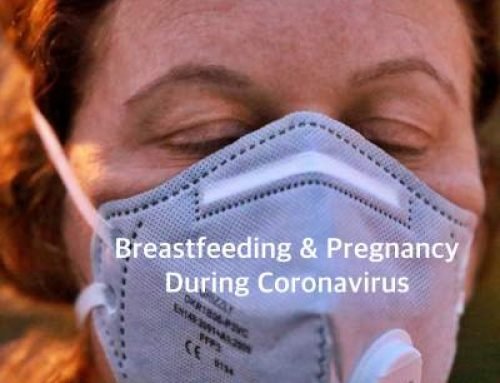How to Plan & Stick to a Healthy Diet
Without doubt, eating healthy is crucial for a good overall health and well-being. By following a healthy diet, you can keep a healthy weight and minimize the chance of serious health complications like hypertension, high levels of bad cholesterol, and type 2 diabetes, as well as heart illness and some types of cancer. However, as emphasized on Help Guide, a healthy diet is never about adhering to strict limitations, staying unrealistically thin, or depriving yourself of the foods you enjoy consuming. It is more about eating to feel good, increasing your energy levels, bettering your health, and enhancing your mood.
Taking into consideration the abundance of unhealthy foods and drinks present these days that often prevent one from planning and sticking to a healthy diet, this article’s main focus will be to showcase the major benefits of eating healthy and to offer important tips that will assist you in creating a balanced and nutritious diet that will be good for both your body and mind. Stay tuned!
The Main Benefits of Healthy Diet
To eat healthy, as explained on Medical News Today, stands for regular consumption of different veggies and fruits of numerous colors, as well as good fats, lean proteins, and whole grains and starches. Also, it means to exclude or to significantly decrease the consumption of foods that are full of added sugar and salt. If you want to be one step closer to bettering your diet and lifestyle, do not miss out the following 10 advantages of a health-giving nutrition shown below.
- Lower risk of cancer
According to Medical News Today, poor diets may elevate the chance for obesity and cancer whereas a normal weight within a healthy range may lower it. Hence, eating a lot of fruits and veggies may decrease your chance of gastrointestinal, colorectal, and liver cancer, as shown by a study. This is believed to be a result of the phytochemicals (lycopene, beta-carotene, and vitamins A, C, and E) present in veggies, fruits, legumes, and nuts which have strong antioxidant characteristics and thus, keep the cells safe from cancer-causing damage.
- Averts strokes and cardiovascular problems
As noted by the National Institutes of Health, vitamin E may have the power to avert blood clotting, which is associated with heart attacks. Some food sources that are abundant in this vitamin are peanuts, hazelnuts, almonds, green veggies, and sunflower seeds. Moreover, the removal of trans fats from your diet may decrease the levels of bad cholesterol which is known to contribute to arterial plaque formation that elevates the chance for strokes and heart attacks. To keep the heart healthy, it is also highly recommendable to maintain a balanced blood pressure and one of the best ways to achieve this is to minimize your salt intake to 1,500 mg per day.
- Triggers weight loss
Chronic illnesses can be successfully decreased by losing surplus weight and maintaining a healthy one, as seen on Medical News Today. Being overweight or obese puts you at a higher risk of heart disease, diabetes, low bone density, and cancer. So, to lose weight, one is required to decrease the calorie intake and there is no better way to do this by increasing the intake of veggies and fruits which are low on calories, unlike processed food options.
- Keeps the teeth and bones strong
Getting sufficient amount of magnesium and calcium is crucial for strong teeth and bones, which is of great importance for decreasing the risk of osteoarthritis and osteoporosis. To ensure optimal bone and teeth health, enrich your diet with the following calcium-abundant foods: cabbage, tofu, legumes, broccoli, low-fat dairy, and cauliflower, as well as with foods that contain high levels of magnesium such as leafy green veggies, whole grains, nuts, and seeds.
Useful Tips to Plan a Healthy Diet & How to Stick to It
As pointed out on Eating Well, in order to be able to eat healthy, you need to do some planning in advance. With this in mind, we have prepared the most important steps that will assist you in creating your own healthy diet and following it easily and on the daily. Let us take a look:
- Put away tempting foods
As seen on Eating Well, according to a study, hiding away unhealthy foods is helpful in lowering their consumption. Therefore, make sure you put away all tempting treats and salty snacks in a remote cabinet and place healthier foods, like fruits, in a more visible area, like the kitchen counter or the dining table.
- Add a fruit or a veggie to every meal
The best way to consume more vegetables and fruits is by combining them with every meal. They will decrease the risk of serious health problems and keep your immunity strong. Though the recommended amount varies according to your age and weight, most adults require 2 cups of fruit on the daily and 3 cups of veggies.
- Pack lunch for work
There is no better way of ensuring you eat healthy throughout the day than by packing your own healthy lunch for work, as well as healthy snacks like nuts, fruits, and veggies. This will also prevent you from reaching for the sugar-rich candy bars or sweet coffee from the vending machine.
- Fill your cabinets with healthy food options
Proper preparation is crucial for those who want to eat healthy, as previously mentioned. So, check your fridge and pantry and remove the foods that are less healthy and then stack up on healthier options; you can also cook several healthy meals and add them as well.
- Create your meal plan
Every Sunday or Monday, make your own meal plan for the upcoming week and shop the necessary ingredients for it. This will enable you to make deliberate, healthy choices.
- Plan your workout program
If you exercise only when you are in the mood or when you have a bit more time on your hands, you will never get on the right path and follow a healthy lifestyle because exercise plays a pivotal role in it. Planning your workouts in advance may be beneficial in helping you stay on track. According to experts, one needs approximately 150 minutes of weekly moderate physical activity such as brisk walking or 75 minutes of weekly vigorous activity like running and strength training twice per one week.
- Keep things simple
Avoid being “obsessed” with calorie counting and allow yourself to enjoy the foods you eat and focus on their colors, freshness, and variety. Make sure you always choose fresh produce and steer clear from buying pre-packaged and overly-processed foods.
- Opt for small portions
Anything supersized in terms of food may not be the best option if you want to eat healthier. Therefore, replace your bowls and plates with smaller ones and when you are dining out, split a meal with your friend or go with a starter instead of an entrée, as suggested on Help Guide.
Insurance
Embry Women’s Health is committed to providing quality, affordable health care. We’re in-network with all major insurance plans, including Aetna, Blue Cross Blue Shield, Cigna and UnitedHealthcare. No insurance? No problem. We offer a simple fee schedule for those who wish to pay out-of-pocket. Click the button below for our complete list and more information:














Great content! Very informative and well written. I really learned a lot from this. Thank you so much for posting!